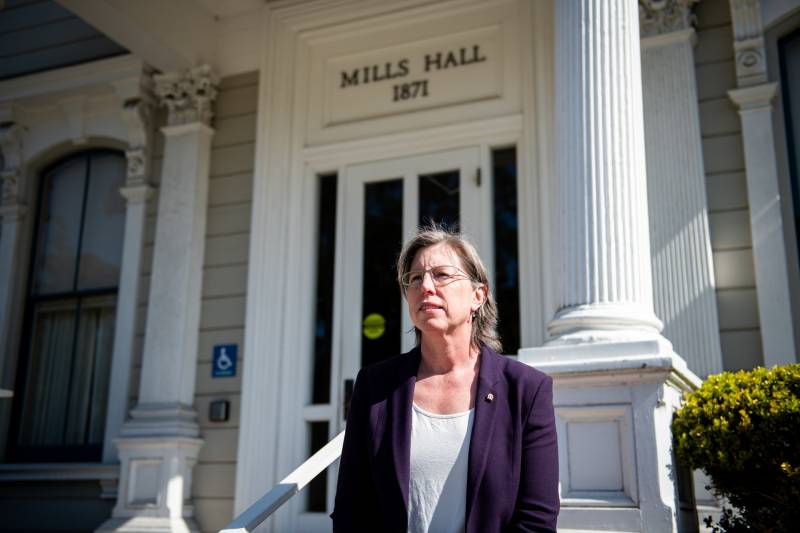A superior court judge in Alameda County has ordered Mills College to provide financial documents to an alumnae trustee before any vote takes place on a potential merger with Northeastern University.
In a hearing Monday, Judge Stephen Pulido granted, in part, Mills College alum trustee Dr. Viji Nakka-Cammauf’s request for documents related to the financial health of the institution — including planning documents, term sheets and financial data. The documents must be delivered electronically by the end of the day on Aug. 18.
The court also issued a temporary injunction that prevents Mills College from entering any new contracts or commitments related to the future of the college. That order will expire on Sept. 3 at 5 p.m., after which the board of trustees (which governs the college) would be able to proceed with a vote on the merger.
“Thankfully, the Alameda County Superior Court has intervened and ruled in favor of truth and transparency about the future of Mills College, which otherwise would continue moving forward with a merger that’s been shrouded in secrecy,” said Alexa Pagonas, vice president of the Alumnae Association of Mills College (AAMC) Board of Governors in a press release. “I’m thankful the Court realized the important and historic nature of this decision.”
In a press release late Monday, Mills College President Elizabeth Hillman said the school would provide the financial records per Judge Pulido’s decision, and called “the continued pursuit” of a merger with Northeastern “vital to advancing the mission of Mills and to ensuring opportunities for our students, our faculty and staff, our alumnae and the broader Oakland community.”

